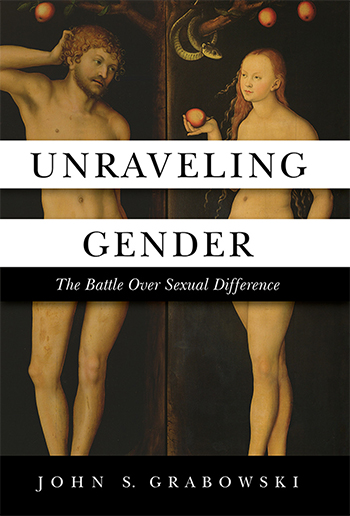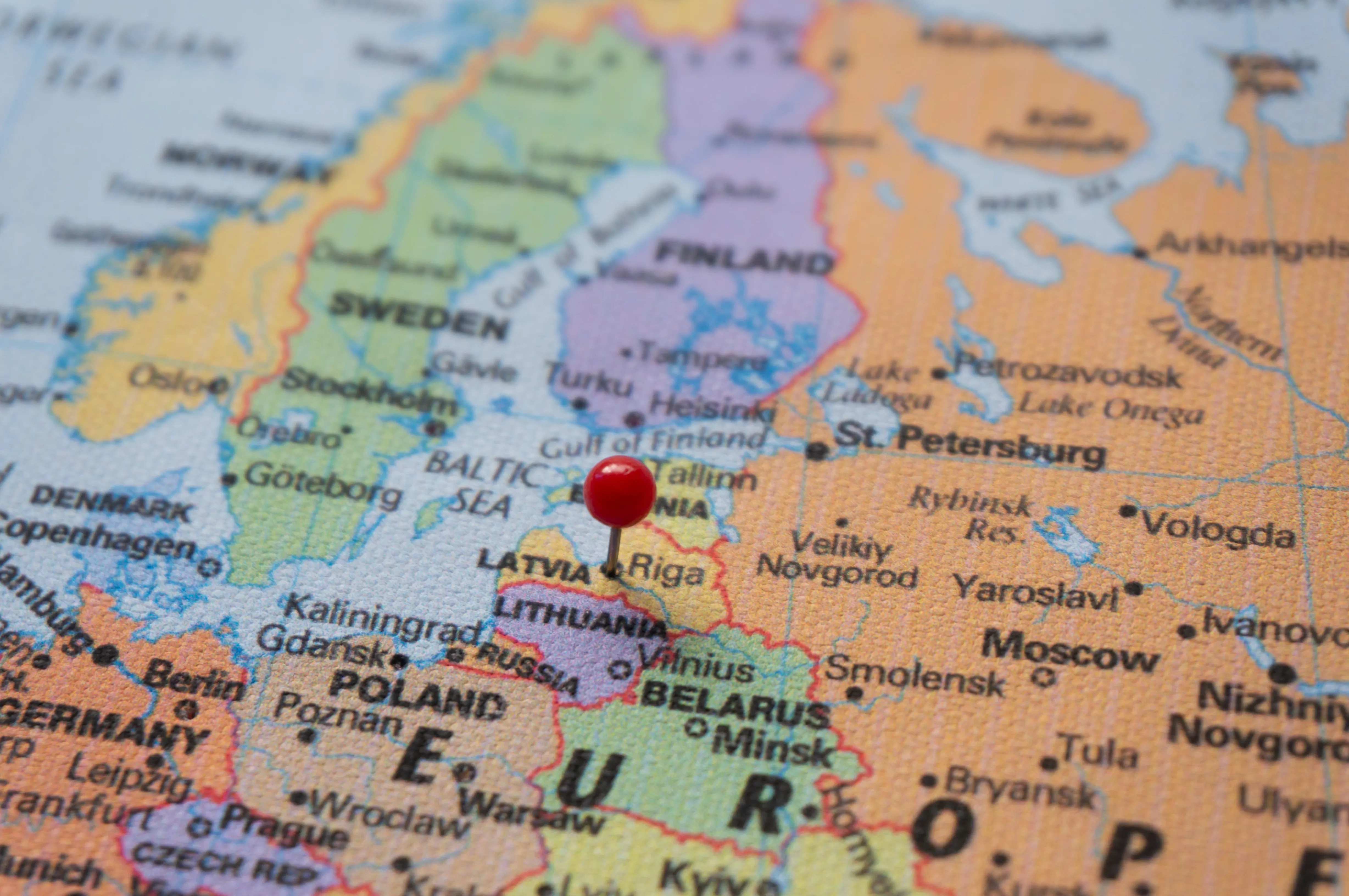
We often hear that nature both recoils at and resists man’s technological exploitation of her and her resources. “Nature is speaking,” declares a prominent conservation organization’s website. “Not only are the oceans and the atmosphere conspiring against us, bringing baking temperatures, more powerful storms, floods and ever-climbing sea levels, but the crust beneath our feet seems likely to join in too,” observed the Guardian in 2007.
It’s ironic, then, that the same people who so readily declare that the very earth itself is rebelling against our abuse of her seem so impervious to the fact that our nature is rebelling against our attempts to refashion according to the fanciful whims of gender ideology. Although evidence proliferates that the fruits of gender ideology have brought little happiness and much grief, our society soldiers on, confident that more technological innovation — and more aggressive repudiation of so-called archaic, oppressive mores — will finally help us realize paradise.
A losing battle against nature
Catholic University of America professor John S. Grabowski’s book Unraveling Gender: The Battle Over Sexual Difference, discusses this tension in great detail. Grabowski cites the available evidence indicating that gender reassignment treatments (e.g. hormones, surgery), are terribly detrimental to personal health. “Significant evidence reveals that aggressive hormonal and surgical transitioning procedures do not improve mental health outcomes for people who undergo them — even in ostensibly LGBTQ+ friendly cultures,” he writes.
Postoperative transsexuals have higher rates for psychiatric hospitalization, criminal conviction, and suicide, as well as a higher risk of mortality. And pushing gender ideology on prepubescent children — through revamped school curricula or drag queen story hours — seems to increase, rather than decrease, rates of gender dysphoria among adolescents. “Those children attending such events who have no difficulty thinking of themselves as a girl or a boy might well begin to think otherwise,” Grabowski observes.
Yet some governments are actually trying to criminalize de-transitioning procedures or therapies for those with gender dysphoria. There is also the alarming use of coercive measures to police language, such as punishing those who “misgender” others. Grabowski cites how as an example Denver Post op-ed columnist Jon Caldara, who in 2020 was fired for arguing that parents deserve to know the content of sex-education provided to their children.
For all our technological and scientific sophistication, twenty-first century man has proved incapable of repudiating nature. Grabowski very effectively summarizes:
The ongoing endurance of a person’s genotypic sex despite the full range of gender transitioning procedures is a stark reminder that sex cannot be wholly erased from the body. The fact that a person who has fully transitioned must remain on cross-sex hormones for the rest of his or her life is an ongoing sign of the body’s refusal to fully submit to this technological override. The continued presence of mental health issues, psychological suffering, and staggering rates of suicide for those who have transitioned, as described earlier, underscores that these ‘medical experiments’ harm rather than help the patient, thus violating the true aims of medicine.
The philosophical roots of the problem
How did we get here? Grabowski’s book is not only an effective indictment of the problems with gender ideology but also a helpful commentary reflection on the various “isms” that have brought us to this confused moment. Gender ideology is based on a morality “organized on the basis of either maximizing pleasure (hedonism) or efficiency (utilitarianism).” It is “unmistakably dualist,” in that the body is a sort of prison from which people need to escape or remake (this also means it shares much in common with the ancient heresy of Gnosticism, which views the soul as good and the body as evil). It shares much with nominalism, which rejects universals and claims that the relationship between language and reality is completely arbitrary.
He points to the postmodern, existentialist roots of gender ideology found in Jean-Paul Sartre and Simon de Beauvoir. Sartre famously claimed: “there is no human nature, since there is no God to conceive it.” That idea is significant, because if there’s no human nature, then our bodies, like the natural world, are subject to our selfish, self-aggrandizing fancies. “Unlike the Catholic vision of seeing the sexually differentiated body as an integral expression of who we are as persons, our contemporary culture views it increasingly as a ‘surface’ or ‘screen’ on which to write self-constructed identity or currently held desires,” Grabowski explains.
He also cites the influence of Marx’s call for the abolition of the family, since that institution perpetuates capitalism and bourgeois norms. And he discusses how prominent feminists including Judith Butler and Shulamith Firestone urged women to transcend their bodies through contraception and abortion so that women are no longer be burdened by their natural fertility (and, by extension, children). Feminism’s effect cannot be understated: children are now considered either a burden or a product to be manipulated through new technological developments such as in vitro fertilization, surrogacy, and genetic screening.
Why theology matters to gender
There is, of course, a theological component to this. Grabowski cites Pope Benedict XVI’s final Christmas address to the Roman Curia, in which our pope emeritus discussed gender ideology in the context of creation:
According to this philosophy, sex is no longer a given element of nature, that man has to accept and personally make sense of: it is a social role that we choose for ourselves, while in the past it was chosen for us by society…. No, what applies now is this: it was not God who created them male and female — hitherto society did this, now we decide for ourselves. Man and woman as created realities, as the nature of the human being, no longer exist…. Man and woman in their created state as complementary versions of what it means to be human are disputed. But if there is no pre-ordained duality of man and woman in creation, then neither is the family any longer a reality established by creation.
“Gender” has shifted from a cultural construct to an individual construct. This in part explains why there has been such a perplexing proliferation of gender identities — indeed, there’s no reason there can’t be as many as there are people on the planet. As Gaudium et Spes asserts: “When God is forgotten, however, the creature itself grows unintelligible.”
It is in his theological analysis that Grabowski is at his most insightful. He notes that in the opening chapter of Genesis, we see that the image of God is connected to the duality of “male and female” (Gen 1:27). “It is among the most basic and irreducible positive features of human diversity, deeper than racial or ethnic differences,” the CUA professor writes. Gender ideology is then an attempt to reverse the very order of creation, not only in attempting to undermine the very basis upon which male and female difference is understood, but in its attacks on language itself, obscuring the meaning of man and woman. “The dissolution of human nature and sexual difference… points to a deeper dissociation of language reality.”
Yet it’s not only the doctrine of creation that gender ideology subverts. “Christian revelation shows that because God Himself is an eternal communion of Persons, our relationality of sexual dimension actually mirrors the Trinitarian mystery.” In other words, our very existence as male and female persons, communicates, however imperfectly and analogically, truths about the eternal Godhead. We can take this even further: “In His Incarnation, the son of God assumed a sexually differentiated (i.e., male) body. He did not just become ‘man’ in the generic sense (homo) but ‘a man’ (vir).” The rejection of the male/female difference is then a rejection of three central doctrines of the Christian faith: the Trinity, Incarnation, and Creation.
An heretical attack on Christian anthropology
All of this builds to Grabowski’s final attack on gender ideology: it should be properly understood as a heresy. This is because it “attacks the foundations of Christian anthropology. It rejects the doctrine of creation that sees the world, the body, marriage, and human fertility as good.” It distorts Christian teaching of salvation, both in its repudiation of the sexual difference affirmed in the Incarnation and its emphasis on technology to solve all of humanity’s problems. It is “a set of ideas antithetical to human dignity and flourishing.”
In his final chapter, Grabowski urges readers to behold the mystery and gift of sexual difference, one not only affirmed by revelation but natural law. It is a mystery because by pursuing an authentic understanding of ourselves as embodied souls, we slowly uncover the truths about ourselves and creation, as well as because we find, albeit imperfectly, fulfillment in our emotional, social, and physical fellowship with others. It is a gift because it is a given, something imparted to us by God Himself, and something that we in turn are able to impart to others. This is not only sexual, but relational: men impart true masculinity to other males (including their own sons) when they embody authentic virtue; women impart true femininity to other females (including their own daughters), when they do the same. Together they form what the Vatican has described as “biological, individual, personal, and spiritual complementarity.”
As with any other heresy, defeating gender ideology requires understanding it and how it diverges from the truths of our faith. With that knowledge, we can discerningly (and fully) repudiate it, while reinforcing our understanding of divine truth. In other words, heresies are not only errors to be defeated, but opportunities to deepen our own love of God and His eternal truths. “Even though you intended to do harm to me, God intended it for good, in order to preserve a numerous people, as he is doing today” (Gen 50:20).
Unraveling Gender: The Battle Over Sexual Difference
By John S. Grabowski, PhD
TAN Books, 2022
Hardcover, 200 pages
• Related at CWR: “Radical feminism and the roots of the godless ‘gender paradigm'” (Aug 21, 2022), an interview with Abigail Favale, author of The Genesis of Gender
If you value the news and views Catholic World Report provides, please consider donating to support our efforts. Your contribution will help us continue to make CWR available to all readers worldwide for free, without a subscription. Thank you for your generosity!
Click here for more information on donating to CWR. Click here to sign up for our newsletter.










As Gaudium et Spes asserts: “When God is forgotten, however, the creature itself grows unintelligible.” This seems to echo Dostoevsky: “If God is not, everything is permitted.” And Chesterton, that when people stop believing in God, it is not that they will believe in nothing, but rather that they will believe in anything.
I’ve long described the feminist/planned parenthood mantra “a woman has a right to control her own body” as a Manichean heresy, now deeply embedded in our culture. But ironically many of the people who decry pollution’s threats to the earth’s ecology think nothing of polluting a woman’s body in contraception. Chesterton prophesied the sexual revolution a century ago, and Dr. Grabowski has well-diagnosed the disease, now infesting parents and children.
Only one human institution, divinely guided, has the anti-dote and that is Roman Catholicism. The foundational church for the renewal of Church and society is the Christian family. St. John Paul understood this so well that in 1981, in Familiaris consortio [nos. 65, 70-71] he instructed the Church’s pastors to both better prepare engaged couples and to accompany them in their life cycle. It just so happens that preparation for infant Baptism, 1st Reconciliation and Eucharist, and Confirmation aligns with the first 20 to 25 years of marriage. I may be wrong, but it is rare that parents are evangelized and (re-)formed in their vocation at these intersections; rather, they attend a meeting or two (paperwork, baptism records, etc.) and continue to drop off their children for an hour of “faith formation.” This sadly rescues them from their own faith growth and their baptismal promises to make disciples of their children (Matt. 28: 19- 20). No wonder we need a Eucharistic revival.
My point: parents are the best and first evangelizers and catechists [Gravissimum educationis (GE), no 3]. No R.E. program can replace them, but Church ministers continue to collude with their lukewarmness. The beauty, truth, and goodness of Grabowski’s concluding exhortation needs to permeate the domestic church. This cannot happen, IMHO, until our Pastors find the courage and the methodology to evangelize, convert, and support couples and parents as “pastors” of their children, for as GE no. 3 points out: their role is so important that scarcely anything can compensate for their failure in it. All else is wishful remedial work.